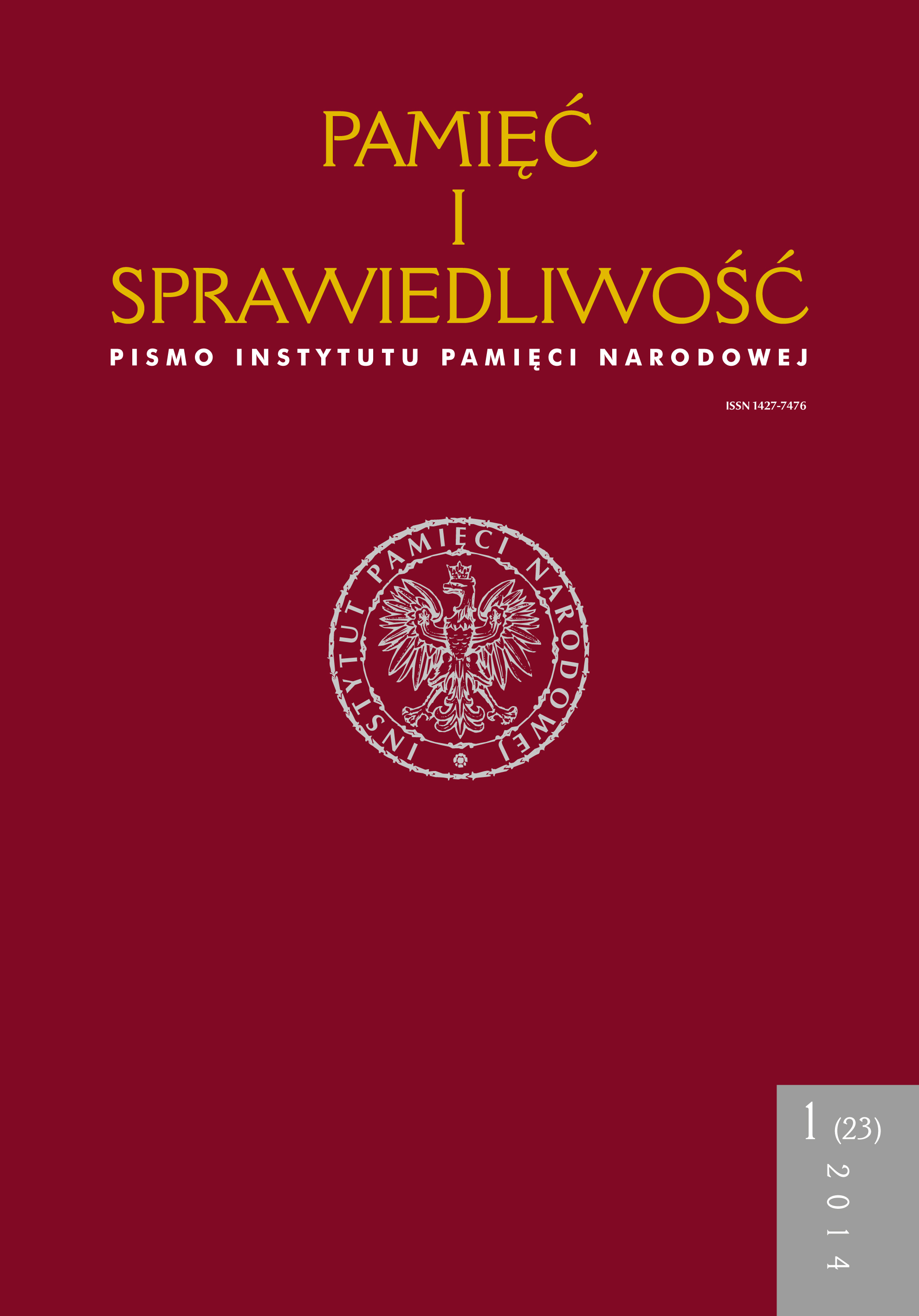Partia, ideologia i wywiad polityczny. Studium funkcjonowania organizacji partyjnej w wywiadzie Ministerstwa Bezpieczeństwa Publicznego
Pamięć i Sprawiedliwość, Bd. 23 Nr. 1 (2014), pages: 217-246
Publication date: 2014-06-30
Abstract
Since 1944, after coming to power in Poland, the Communist Party interfered in
all spheres of political, social and cultural life. Party units operating in institutions
and workplaces constituted one of the tools of that interference, subordinated to
the communist ideology. The paradox was that similar units of “ideological
surveillance” were also formed in the civilian intelligence structures of the Ministry
of Public Security. It was one of the ideological surveillance mechanisms used to
exert pressure which affected the nature of information collected and transferred
to the authorities. It often had more to do with propaganda than with reliable,
objectified knowledge. Materials of the Seventh Department, i.e. the MBP civilian
intelligence, contain minutes of meetings of these party units which shed much
new light on the functioning of the intelligence, as well as its relations with the
central structures of the party. Intelligence became part of the repressive
apparatus, and it was repression that became a priority, not the informational activities.
Right political attitude became more important than the credibility of intelligence
information. Intelligence, like the entire state apparatus, was to search for and
eliminate the “enemies of the people,” provide information in accordance with the
doctrine, and what is more, it was also supposed to take care of the ideological
purity of its own staff. Contrary to democratic states, control mechanisms were
subordinated to the ideology. Insufficient ideological control and wrong personnel
policy was one of the reasons for the reorganisation of the intelligence structures
carried out in the early 50s.
Am häufigsten gelesenen Artikel dieser/dieses Autor/in
- Sławomir Łukasiewicz, Paweł Machcewicz, Paweł Sasanka, Paweł Ziętara, Rok 1956 - 60 lat później. Dyskusja z udziałem Sławomira Łukasiewicza, Pawła Machcewicza, Pawła Sasanki, Pawła Ziętary , Pamięć i Sprawiedliwość: Bd. 28 Nr. 2 (2016)
- Sławomir Łukasiewicz, Federacja jako zagrożenie. Działania wywiadu PRL wobec polskich federalistów na Zachodzie po drugiej wojnie światowej , Pamięć i Sprawiedliwość: Bd. 12 Nr. 1 (2008)
- Sławomir Łukasiewicz, Aparat bezpieczeństwa PRL o polskich federalistach , Pamięć i Sprawiedliwość: Bd. 12 Nr. 1 (2008)
- Sławomir Łukasiewicz, [Recenzja] Artur Trudzik, Polski Ruch Wolnościowy „Niepodległość i Demokracja” i jego organ prasowy „Trybuna”. Dzieje ruchu, periodyku i innych czasopism wydawanych przez PRW „NiD”, Warszawa 2009 , Pamięć i Sprawiedliwość: Bd. 16 Nr. 2 (2010)
- Sławomir Łukasiewicz, Zimnowojenna emigracja polityczna jako przedmiot badań , Pamięć i Sprawiedliwość: Bd. 15 Nr. 1 (2010)
- Sławomir Łukasiewicz, Przesłuchania generała Modelskiego przed komisjami Izby Reprezentantów i Senatu USA wiosną 1949 roku , Pamięć i Sprawiedliwość: Bd. 15 Nr. 1 (2010)
 Język Polski
Język Polski
 English
English
 Deutsch
Deutsch
 Français (France)
Français (France)
 Italiano
Italiano
 Русский
Русский


 PDF (Język Polski)
PDF (Język Polski)
